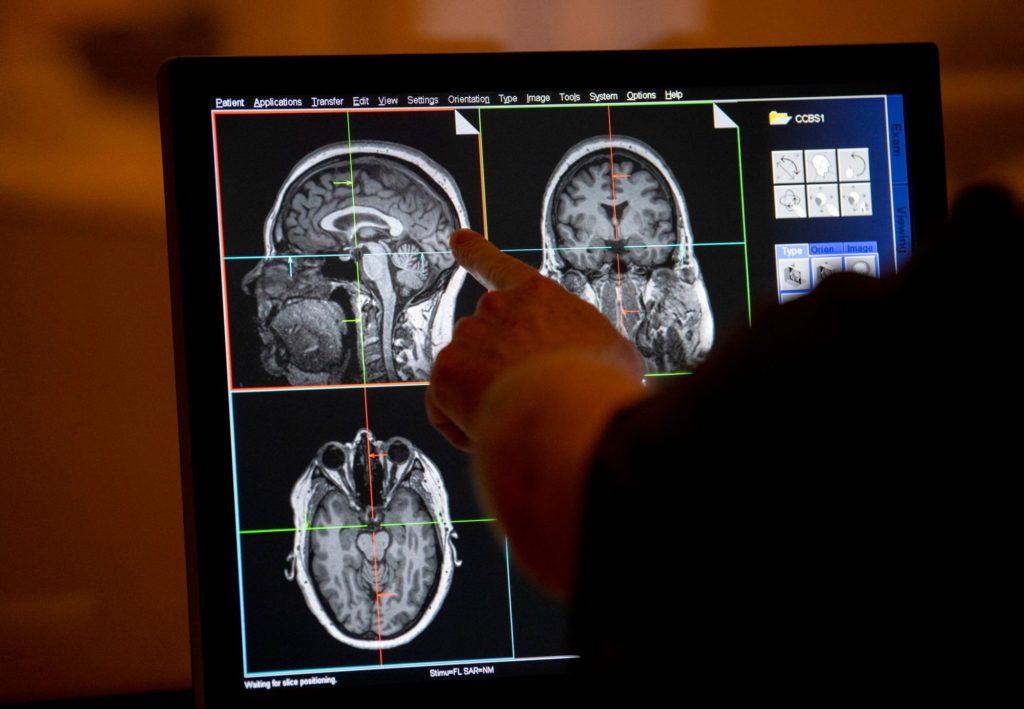A new study by the Cleveland Clinic has set out to identify early biomarkers of brain disease appearing before clinical symptoms present in an effort to better understand the causes of neurological disorders.
Researchers at the Cleveland Clinic will gather data from as many 200,000 neurologically healthy people as part of the largest ever clinical study of brain disease. Data from these individuals will be collected over 20 years, hoping to find and identify the earliest biomarkers of brain disease and make progress toward the prevention and treatment of these neurological conditions.
Neurological diseases like Alzheimer’s, Parkinson’s, multiple sclerosis (MS), strokes, and epilepsy affect one in six people worldwide. Though modern medicine has made strides in the management of certain brain disorder symptoms, predicting, curing, and preventing the progression of these diseases remains challenging.
The research efforts are based at the Cleveland Clinic’s main campus with plans to grow into other clinic sites in the future. The longitudinal study is led by Andre Machado, M.D., Ph.D., and Imad Najm, M.D., of Cleveland Clinic’s Neurological Institute, with support from a multidisciplinary team of scientists and doctors from around the world.
“Disrupting neurological diseases is one of the greatest challenges of our time and motivates our clinicians and scientists every day. By launching a study of this magnitude, we have the potential to discover causes of neurological disorders and what happens before symptoms become obvious – the silent phase,” says Dr. Machado, chair of the Neurological Institute and the Charles and Christine Carroll Family Endowed Chair in Functional Neurosurgery, in a statement.
The first five years of the study will involve vetting and examining 10,000 volunteers. These volunteers will include neurologically healthy 20-year-olds with a close relative diagnosed with MS, and 50 year old with no neurological diagnoses. These volunteers will participate in a yearly neurological exam, as well as eye retina scans, brain MRIs, bloodwork, EEG and sleep studies, and other tests evaluating cognitive function and ability.
Over the years, advanced computing tools will convert study data to a visual trend line. This line will allow researchers to observe genetic risk factors, as well as otherwise invisible molecular, structural, neurophysiological, and cognitive/memory changes inside the brain. This information will be the map researchers use to find and identify “disease fingerprints” that will aid in the prevention, diagnosis, and development of medical treatments for neurological disorders.
“By researching at-risk healthy individuals over the course of 20 years, we will learn what is happening to the brain and body before a neurological disease is diagnosed. This research will help us understand the mechanisms of brain diseases and lead to the design of preventive treatment for neurological diseases,” said Dr. Najm, vice chair of the Neurological Institute for Strategy and Development and director of Cleveland Clinic’s Charles Shor Epilepsy Center and the Joseph H. and Ellen B. Thomas Endowed Chair in Epilepsy. “This is precision medicine in its best form. We’re building a foundation to screen one person at a time – potentially with something as routine as a blood test – to diagnose brain disease on the spot and prevent it from happening altogether.”
The impact of degenerative neurological conditions is widespread, harming millions of individuals, families, and communities on a yearly basis. Researchers hope that their efforts in this study will make significant advances in the prevention and treatment of these diseases.
“Our hope is to change the course of neurodegeneration, with the long-term goal of curing diseases in their earliest stages, years before symptoms are even seen,” said Machado. “Achieving this will be a great gift to our children and grandchildren. We can make neurological care better for the next generations.”
Article by Anna Landry; Image: A researcher examines an MRI from a participant in the Cleveland Clinic Brain Study. (Photo courtesy of Cleveland Clinic.)













Comments